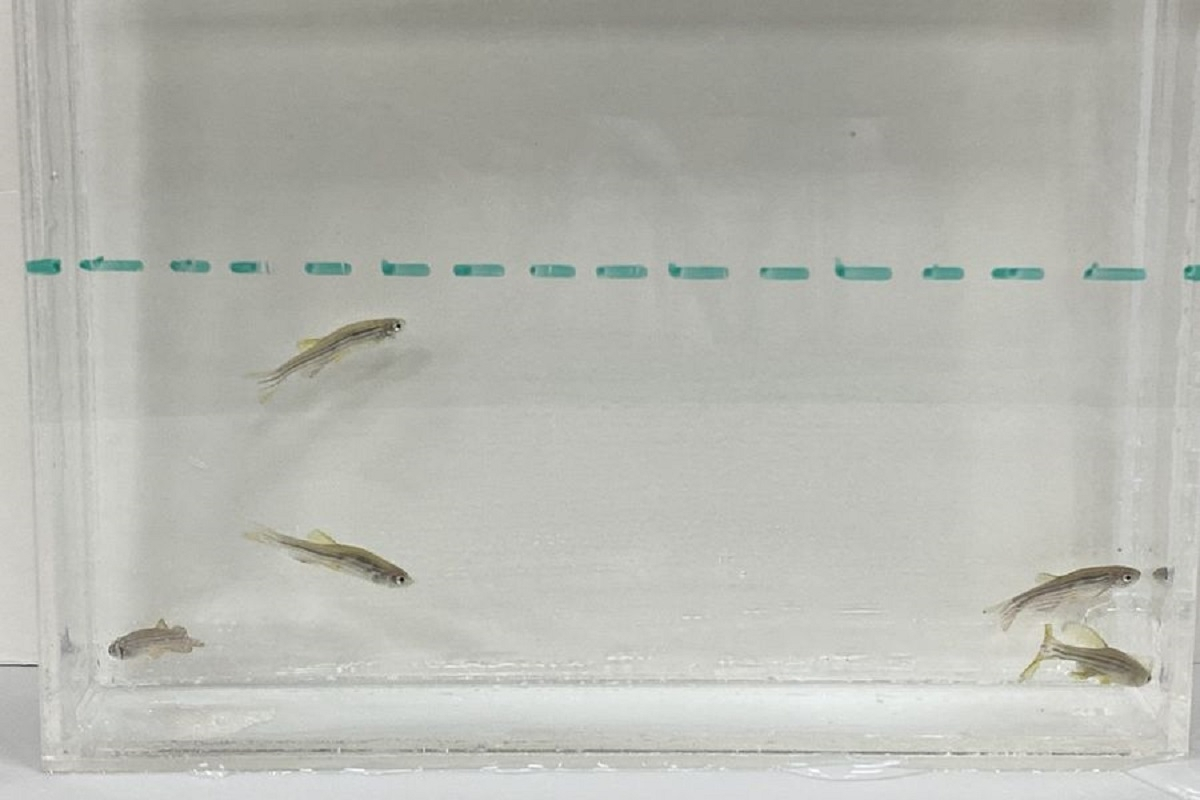Scientists treat fish from stress by using antidepressants and immunomodulators

Russian scientists have revealed that immunomodulators and their combinations with the antidepressant fluoxetine can help overcome anxiety in fish. Biologists created artificial conditions that caused long-term unpredictable stress in zebrafish (Danio rerio), and then 'treated' them with drugs. These studies are expected to help develop new methods to deal with mental disorders caused by chronic stress.
The research is supported by the grant from the Russian Science Foundation. The research findings are published in the Scientific Reports.
Every day, we are exposed to a variety of stress factors. Among them are hard work, constant city noise, anxiety, worrying about somethings, and lack of sleep to name but a few. Being exposed to acute stress, for example, exhausting work, for months or years can lead to serious mental health problems such as depression. Treating them is difficult because the symptoms are different as are the factors that influence how these symptoms can manifest. Among such factors can be genetic, social, or environmental factors.
Additionally, stress often intensifies inflammation. This can weaken the immune system and cause diseases to progress. Scientists use laboratory animals to carry out an in-depth study to gain an insight into what causes the stress-related illnesses and how they can progress. Zebrafish is a good model for research of its kind, because they are easy to breed and unpretentious. Additionally, their genome, physiology, and brain structure are quite similar to those that humans have.
The researcher team includes scientists from: St Petersburg University; Almazov National Medical Research Centre; Granov Russian Research Centre of Radiology and Surgical Technologies (St Petersburg); Moscow Institute of Physics and Technology (Moscow); Sirius University of Science and Technology (Sochi); Ural Federal University (Ekaterinburg); and Maastricht University (the Netherlands). They analysed how stress could affect behaviour of and hormone levels in zebrafish.
Before the start of the experiment, a population of several dozen individuals of zebrafish was kept in standard and comfortable conditions, i.e. a large aquarium with an optimal water temperature and lighting. Then half of the fish were transferred to other aquariums with less favourable conditions: water temperature fluctuated from being higher to being lower than normal; there was a predator in the water or the water smelled like a predator; the light was too bright or there was no light at all; there was no food; and other conditions that caused stress. For eleven weeks, the fish were exposed to daily various tests. The biologists monitored the state of the fish. In the end, they administered stress pharmacotherapy by using fluoxetine that was widely used in medicine as an antidepressant. What makes this approach different is that the researchers combine fluoxetine with immunomodulators, i.e. lipopolysaccharide that is a pro-inflammatory polymer from the bacterial cell wall that triggers an immune response, and eicosapentaenoic acid that is part of many animal fats and suppresses inflammatory reactions in the body.
The fish that were exposed to stress tended to form tight and dense schools of fish and swim on the bottom of the aquarium. This evidenced increased anxiety. Yet, as the scientists discovered, it was associated with an increase in their ability to aversive learning, i.e. an ability to be aware of danger. For that reason, the researchers carried out a curious test. The zebrafish were placed in the aquarium that was divided into light and dark parts. Fish naturally prefer low-light places, and, during the experiment they therefore tried to spend more time in the dark part of the aquarium. The researchers periodically applied electric current to this comfort zone, which made the fish swim away. Consequently, the fish that had been previously exposed to stress began to appear more rarely in the dark part than the 'calm' fish did. This is evidence that they could learn more quickly as to how to avoid the unpleasant factor, i.e. electric current.
Having carrying out all the experiments, the scientists painlessly euthanised the fish to use samples of their nervous tissue to study their hormone levels. Treating the ‘anxious’ zebradanios by using antidepressants and immunomodulators showed that fluoxetine, as it had been expected, relieved anxiety and decreased stress-induced levels of norepinephrine in the brain. Additionally, combining fluoxetine with eicosapentaenoic acid had an even stronger effect. They could restore calm behaviour of fish and level of stress hormone. Moreover, they increased the level of dopamine, i.e. the hormone of joy. When zebrafish were injected with fluoxetine in combination with lipopolysaccharide, they, on the contrary, became more anxious and gathered in even denser schools than when exposed to chronic stress.
'Our research has shown that it is possible to synergistically increase the effectiveness of stress therapy with both antidepressants and their combinations with additional substances. For example, eicosapentaenoic acid, i.e. a polyunsaturated omega-3 fatty acid found in many seafood, helps fluoxetine fight stress and has an anti-inflammatory effect on the body, which is especially important in case of nervous disorders. We are planning to delve deeper into how fluoxetine can interact with the immunomodulators of eicosapentaenoic acid and lipopolysaccharide in order to gain a better understanding of what is behind the increase or decrease in their effectiveness in combating stress', says Professor Allan Kalueff, Head of the project under the grant from the Russian Science Foundation, Doctor of Biology, Member of the European Academy, and Head of the Laboratory of Biological Psychiatry at St Petersburg University.

